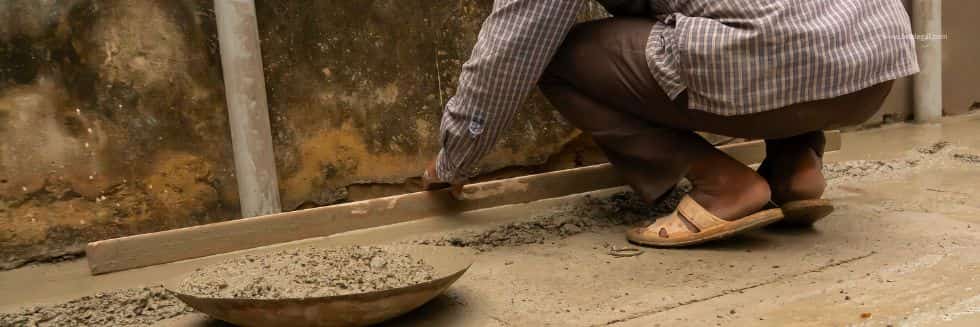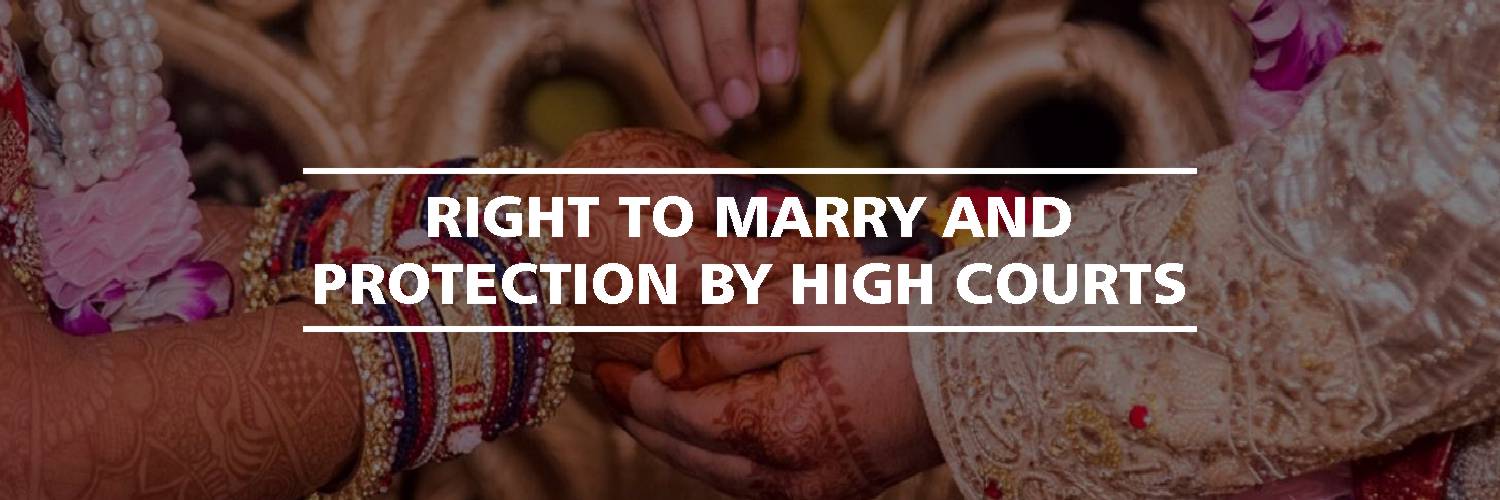The purest relationship in this world is between a child and parents. Especially in India, parents are considered in the place of God. But with the passage of time, we are coming across different incidents where this relationship turns sour and harmful. Courts come across different cases where parents are harassed or assaulted by their children. Parents opt for legal recourses where they wish to detach themselves.
So can parents disown their children in India?
The answer falls in a grey area. Yes, you can evict your child from your home but there is no such concept of disowning your child in the Indian legal system. Let’s understand it in detail.
What Is The Procedure To Disown A Son In India?
The joint family system is disappearing with time and is being replaced by the nuclear family system. Senior citizen harassment cases have been on an increase. To get rid of the harassment and agonies, they finally have to take the difficult decision and opt for legal options to disown a son or daughter. Different thoughts start hitting the mind at that time.
How do I disown my son legally in India? Is there any way I can evict my son from my house?
Though there are no laws for disowning a child under Indian laws, parents financially and emotionally cut off their own children with legal impunity.
Parents can publish a notice in two public newspapers which are widely distributed in that area. Though such a proclamation doesn’t have any dispositive legal effect, it makes everyone aware that you are disowning your son.
Besides cases related to cruelty against senior citizens, parents can also decide to disown a child because either they don’t want to have a moral relationship with the child, don’t want to maintain the son anymore, to safeguard themselves from the creditors of their son, or to disinherit the son from the property.
But can parents actually disown a child from the property?
Can Parents Disown A Son From Ancestral Property?
The answer is no. Parents can never disown a son from ancestral property. As per the Supreme Court of India, “Ancestral property means, as regards sons, property inherited from a direct male lineal ancestor, and as regards collaterals, property inherited from a common ancestor.”
As per the Indian inheritance laws, each son gets an interest in the ancestral property equal to and independent of his father right from birth. This son is entitled to this right when the grandfather’s property has devolved upon his father and has become ancestral property in his hands.
Therefore, the intention of the father to disown a son is immaterial because the son cannot be excluded from ancestral property. But the son cannot claim the right to property when the property is self-acquired unless he proves that he has contributed toward the acquisition of that property.
In order to find out whether a property is ancestral or not, the relationship is not the sole criteria but the mode of transmission is also considered.
What Is Ancestral Property?
Ancestral property is the property inherited by a Hindu from his father, father’s father or father’s father’s father. It is the property acquired by the great grandfather which then passes undivided down the next three generations up to the present generation of great grand son/daughter.
The concept of ancestral property includes
- This property should be four-generation old.
- It should not have been divided by the users in the joint Hindu family as once a division of the property takes place, the share or portion which each Coparcener gets after the division becomes his or her self-acquired property.
- The right to a share in ancestral or coparcenary property accrues by birth itself, unlike other forms of inheritance, where inheritance opens only on the death of the owner.
- The rights in ancestral property are determined per stripe and not per capita. The share of each generation is first determined and the successive generations in turn subdivide what has been inherited by their respective predecessor.
- Properties inherited from mother, grandmother, uncle and even brother is not ancestral property. Property inherited by will and gift is not ancestral property.
- Self-acquired property can become ancestral property if it is thrown into the pool of ancestral properties and enjoyed in common.
What Is Self-Acquired Property?
As per the Hindu Succession Act of 1956, any property that is acquired by a person himself, either by way of his own resources or by way of division of the ancestral property, is his self-acquired property.
Besides this, a property acquired by virtue of being a legal heir, through a “gift deed” or ‘will’ also comes under the category of self-acquired property. Also, property inherited from a deceased brother, uncle, etc. is also self-acquired property.
One of the major differences between ancestral property and self-acquired property is “ownership”. In case of self-acquired property, the buyer is the sole owner of the property. The person has the freedom to transfer or sell the property to anybody.
Right Of A Son In Father’s Self-Acquired Property
Is there any right of a son in the father’s self-acquired property? Can a son claim his share in self-acquired property?
The answer is no unless the son can prove his contribution to that self-acquired property. As per Yagnavalkya (a Hindu Vedic sage), “whatever is acquired by the coparcener himself without detriment to the father’s estate as present from a friend or a gift at nuptials, does not appertain to the co-heirs.”
In a recent Delhi High Court judgment, Justice Pratibha Rani noted that a son has no legal right in the self-acquired property of his parents, unless he has proof of his contribution towards the acquisition of the property. The parents have all the authority to allow or disallow the son to live on the property.
“Where the house is a self-acquired house of the parents, a son, whether married or unmarried, has no legal right to live in that house and he can live in that house only at the mercy of his parents up to the time the parents allow,” Justice Rani had added.
However, if the parents die intestate (not having made a will before one dies), doesn’t matter how sour their relationship was, the son will have succession rights over the self-acquired property.
Is It Legal To Disown A Minor Child In India?
Parents cannot disown a minor child. They can only disown and stop maintaining him/her after attaining majority under the Indian Majority Act, 1875. It is their responsibility to maintain the minor children till they turn major.
As per Section 125 of the Code of Criminal Procedure, 1973, a man cannot refuse to provide maintenance to a legitimate or illegitimate minor child. The father is also expected to maintain a child if he/she is physically or mentally handicapped.
In cases where a minor girl is married and her husband doesn’t have the means to maintain her, the father is responsible to maintain her.
Can A Child Disown His/Her Parents In India?
Emancipation is a process by which a minor child can get the status of an adult where the person has to prove that he/she can maintain himself/herself.
A child is allowed to apply for emancipation when
- The parents are abusive and they can’t take care of the child
- The situation in the parent’s home is emotionally, morally, and physically harming
- The child has reached financial independence and wants adult rights
- The applicant is a major and prefers to stay alone.
However, there is no legal provision for emancipation by children in India.
How To File For Legal Separation From Parents In India?
Though there is no legal provision for emancipation in India, children can seek legal separation from their parents that too after the children have turned major. Following are the steps which can be followed for the same.
- The person can file a petition stating why you wish to separate from the parent.
- Then you must inform your parents in writing regarding the will to separate. You will be notified of the date and time of the hearing.
- It is usually better to write a declaration of intent to explain the present situation in your life, why you want to be legally separated from your parents, and how you intend to make a living.
- The applicant can also include letters of recommendation from a concerned person like the applicant’s employer, teacher, or landlord.
- The petitioner shall also attach the bank statement, salary, and credit card.
- If parents refuse to sign the consent form. In this case, they will receive a hearing notice from the court via mail.
Right Of A Daughter In Ancestral Property
Prior to 2005, the daughter was entitled to a limited share in the coparcenary interest of her father not having a share as a coparcener in her rights. They were not able to inherit ancestral property like sons/male counterparts.
However, the amendment in the Hindu Succession Act, 1956, with effect from 9 September 2005, the daughters became coparceners by birth, in their own right with the same liability in the coparcener property as if she had been a son.
Important Judgments Related To Concept Of Ancestral Property
Law laid by Delhi High Court
In case titled Surender Kumar vs Dhani Ram CS (OS) No.1737/2012 decided on 18th January, 2016 Hon’ble Mr. J. Valmiki Mehta of Delhi High Court ruled-
(i) If a person dies after passing of the Hindu Succession Act, 1956 and there is no HUF existing at the time of the death of such a person, inheritance of an immovable property of such a person by his successors-in-interest is no doubt inheritance of an ‘ancestral’ property but the inheritance is as a self acquired property in the hands of the successor and not as an HUF property although the successor(s) indeed inherits ‘ancestral’ property i.e a property belonging to his paternal ancestor.
(ii) The only way in which a Hindu Undivided Family/joint Hindu family can come into existence after 1956 (and when a joint Hindu family did not exist prior to 1956) is if an individual’s property is thrown into a common hotchpotch. Also, once a property is thrown into a common hotchpotch, it is necessary that the exact details of the specific date/month/year etc of creation of an HUF for the first time by throwing a property into a common hotchpotch have to be clearly pleaded and mentioned and which requirement is a legal requirement because of Order VI Rule 4 CPC which provides that all necessary factual details of the cause of action must be clearly stated.
Thus, if an HUF property exists because of its such creation by throwing of self-acquired property by a person in the common hotchpotch, consequently there is entitlement in coparceners etc to a share in such HUF property.
(iii) An HUF can also exist if paternal ancestral properties are inherited prior to 1956, and such status of parties qua the properties has continued after 1956 with respect to properties inherited prior to 1956 from paternal ancestors. Once that status and position continues even after 1956; of the HUF and of its properties existing; a coparcener etc will have a right to seek partition of the properties.
(iv) Even before 1956, an HUF can come into existence even without inheritance of ancestral property from paternal ancestors, as HUF could have been created prior to 1956 by throwing of individual property into a common hotchpotch. If such an HUF continues even after 1956, then in such a case a coparcener etc of an HUF was entitled to partition of the HUF property.
Law laid by Supreme Court now
The law, therefore, insofar as it applies to joint family property governed by the Mitakshara School, prior to the amendment of 2005, could therefore be summarized as follows:-
(i) When a male Hindu dies after the commencement of the Hindu Succession Act, 1956, having at the time of his death an interest in Mitakshara coparcenary property, his interest in the property will devolve by survivorship upon the surviving members of the coparcenary (vide Section 6).
(ii) To proposition (i) an exception is contained in Section 30 Explanation of the Act, making it clear that notwithstanding anything contained in the Act, the interest of a male Hindu in Mitakshara coparcenary property is property that can be disposed of by him by will or other testamentary disposition.
(iii) A second exception engrafted on proposition (i) is contained in the proviso to Section 6, which states that if such a male Hindu had died leaving behind a female relative specified in Class I of the Schedule or a male relative specified in that Class who claims through such female relative surviving him, then the interest of the deceased in the coparcenary property would devolve by testamentary or intestate succession, and not by survivorship.
(iv) In order to determine the share of the Hindu male coparcener who is governed by Section 6 proviso, a partition is effected by operation of law immediately before his death. In this partition, all the coparceners and the male Hindu’s widow get a share in the joint family property.
(v) On the application of Section 8 of the Act, either by reason of the death of a male Hindu leaving self-acquired property or by the application of Section 6 proviso, such property would devolve only by intestacy and not survivorship.
(vi) On a conjoint reading of Sections 4, 8 and 19 of the Act, after joint family property has been distributed in accordance with section 8 on principles of intestacy, the joint family property ceases to be joint family property in the hands of the various persons who have succeeded to it as they hold the property as tenants in common and not as joint tenants.
Conclusion
So, there are no specific laws related to the disownment of children in India. But in extreme situations, parents can seek legal help to get relief. Hopefully, this article on can parents disown their children legally in India has cleared all your doubts.
This article is written by Varsha. You can reach out to the author via email at bnbvarsha@gmail.com.









